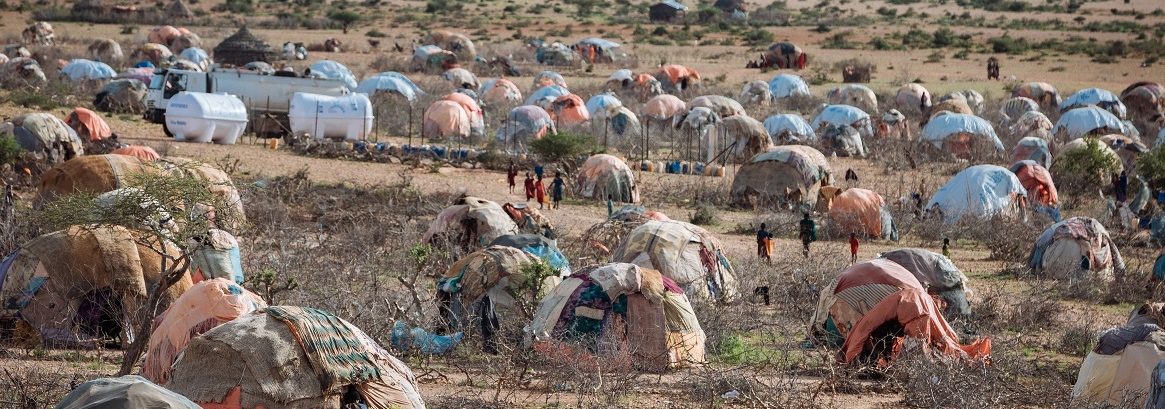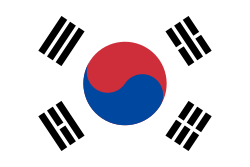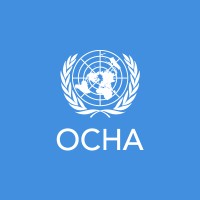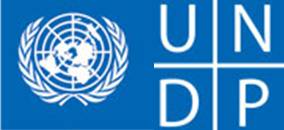IOM Vision
IOM Ethiopia plans to provide timely and tailored humanitarian assistance and resilience programming for crisis-affected populations in Ethiopia and vulnerable migrant returnees, aiming towards durable and sustainable solutions.
Objective
Saving lives and protecting people on the move
|
Target beneficiaries under this component are 1,343,500 displacement affected people. Beneficiary communities participate in this effort from start to finish - from local women's committees supporting the design and management of projects, to daily worker programs for the implementation of projects. Target beneficiaries include 43,750 refugees assisted with relocation assistance. In addition, IOM will target 178,379 vulnerable returnees to Ethiopia, most of them forced returnees from the Kingdom of Saudi Arabia and Ethiopia’s neighbouring countries who will be quarantined at Points of Entry, or other GoE designated quarantine facilities as part of the government’s efforts to prevent the spread of the COVID-19 pandemic. IOM foresees that among them could be as many as 11,400 unaccompanied migrant children (UMC). |
|
In order to strengthen the protection response to vulnerable returnee migrants at Points of Entry, IOM plans to carry out the following interventions:
|
|
IOM’s 2021 Shelter and Non-Food Items (S-NFI) program will pursue interventions supporting the nexus between emergency and recovery phases. Emergency response interventions will ensure critical steps are taken to provide safety and dignity and access to basic household supplies for displacement affected populations and returnee migrants, while recovery programs will pursue participatory shelter repairs and rehabilitation. Housing and land issues will be assessed and prioritized for support in all relevant contexts to ensure adequate security of tenure and avoid the eviction of beneficiaries. Cash-Based Interventions (CBI) will be considered dependent on the context of each target area. Where possible, shelter interventions will be conducted alongside WASH, Site Management Support (SMS), and Health sectors to increase the impact of the response. Activities include:
|
|
IOM’s 2020 WASH strategy will focus on the expansion of emergency response capacities to ensure timely and appropriate services across the country while prioritising activities that reduce the likelihood of public health outbreaks in view of the COVID-19 pandemic and other common diseases in Ethiopia. All distribution, training and mass gathering activities will be implemented following national/WHO COVID-19 preventive measures to promote safety. Activities include:
|
|
In 2021, Site Management Support (SMS) teams will provide coordination and information management support to enable the provision of assistance and protection to displaced populations and returnees, including activities to mitigate the spread of COVID-19. Support will focus on the four pillars of response: - Site/Area Coordination, including Information Management
- Site Planning, Maintenance & Upgrading
- Community Participation/Self-Governance Activities
- Capacity Building
|
|
IOM seeks to strengthen and expand upon its core health activities in current areas and launch further support to new operational locations in response to needs, incorporating COVID-19 support in its routine primary health care provision. IOM’s interventions are closely coordinated and integrated with the governmental health system. Activities include:
|
|
In 2021, IOM will focus on providing mental health and psychosocial support activities, including counselling to IDPs and vulnerable returnee migrants, while capacitating local actors to provide quality assistance. IOM applies an integrated approach to ensure that community resilience is adequately boosted, while severe cases are properly supported in line with IOM’s Manual on Community-Based MHPSS in Emergencies and Displacement and government referral pathways. Activities include:
|
|
In 2021, IOM, in coordination with UNHCR, government and other partners, will provide relocation assistance and protection in a timely, safe and dignified way for emergency transportation from Points of Entry (PoEs) to designated camps in Ethiopia, as well as relocation between camps. An effective feedback mechanism is in place to ensure beneficiaries receive adequate and timely information on access to travel and assistance. To ensure their safety and dignity, experienced medical and operations staff are deployed in our operational areas. Activities include:
|
To address the needs of crisis-affected populations, IOM proposes to:
- Provide lifesaving humanitarian assistance through multi-purpose cash transfers (MPCT) for vulnerable IDPs across Ethiopia to cover basic needs like emergency food, livelihoods, shelter, and WASH, as well as some transportation costs. Considering that IDPs are on the move and the needs of affected people are diverse, unconditional cash-based assistance will enable beneficiaries to prioritize their most pressing needs in a dignified manner;
- Provide emergency food assistance as part of its support to vulnerable migrant returnees arriving at land PoE.
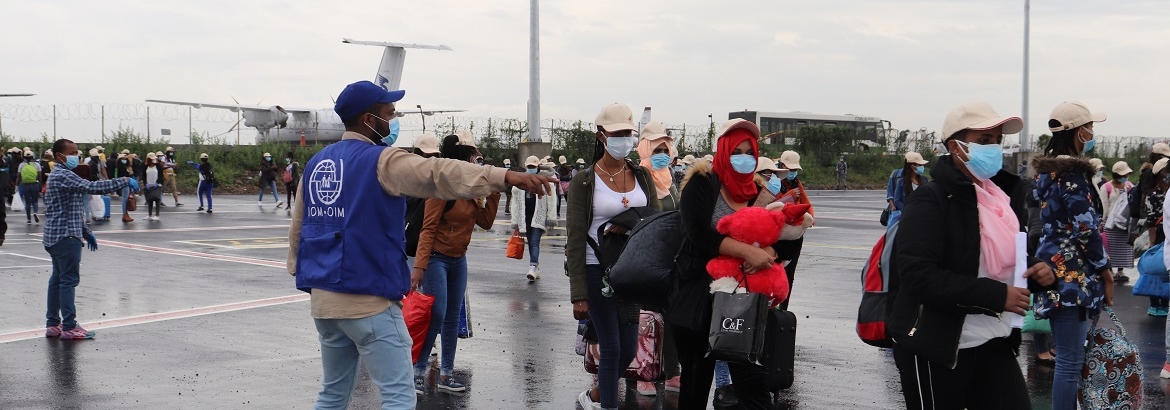
Objective
Driving solutions to displacement
|
IOM seeks to respond to the needs of IDPs in protracted displacement as well as returnees who face a range of challenges to achieving sustainable reintegration. IOM will also collaborate with community actors, such as women's peace committees as agents of change, and marginalized groups, as well as relevant governmental and non-governmental stakeholders. In addition, IOM will promote the sustainable reintegration of former combatants. |
|
COVID-19 is expected to exacerbate the factors contributing to unsafe irregular migration in the most vulnerable households of migration hotspot areas. IOM aims to provide viable alternatives to (re)migration and to stabilise socioeconomically distressed communities through community-based interventions in 20 key migration hotspots. These interventions will promote partnerships among returnees and non-migrant members of the community, as well as with local NGOs that have an active presence at the grassroots level. Activities include:
|
|
With the overall goal of contributing to the Government of Ethiopia’s efforts to progressively resolve the displacement of IDPs in the country, IOM focuses on supporting the implementation of the Durable Solutions Initiative (DSI) Ethiopia, jointly launched by the GoE and the UN in December 2019. In 2021, IOM will continue to support:
|
|
Given the fragility of state and community structures, IOM supports national processes to promote peace and reconciliation and the building of an inclusive peace infrastructure and dispute resolution mechanisms. Interventions aim to strengthen the capacity of local government and local inter-governmental structures on conflict prevention, as well as customary conflict resolution mechanisms. In addition, a bottom-up approach focuses on communities at the grassroots level – IOM organizes interactive community activities to find durable resolutions to conflicts and to foster stability and social cohesion of various ethnic groups, including marginalized community members such as youths, women and persons with disability. Activities will include:
|
|
IOM supports climate- and conflict-affected communities across Ethiopia to re-establish social, economic, and local, regional as well as federal governance structures in the wake of crises. Interventions focus on working with community networks and local governance structures to promote social cohesion and strengthen institutional capacity, thus improving community self-reliance and the conditions necessary for recovery. IOM also supports sustainable livelihood and economic activities to vulnerable IDPs, returnee and host community households to improve their socio-economic conditions and strengthen their local integration. In view of high youth unemployment and gender disparities in Ethiopia, interventions focus on the socio-economic empowerment of vulnerable youth and women. Activities include:
|
Objective
Strengthen preparedness and reduce disaster risk
|
Under this Objective, IOM will target government actors who are managing PoEs, focusing on health aspects of border management, as well as local government structures and communities affected by displacement or at risk of displacement due to natural hazards. |
|
IOM will continue supporting Points of Entry (PoEs) and their main actors to strengthen health aspects of border management amidst the COVID-19 pandemic. This will include:
|
|
IOM uses a holistic two-fold approach to implement activities that contribute to disaster risk reduction and uplift communities overall. On the one hand, IOM supports preventing/mitigating displacement related to natural hazards through disaster prevention mechanisms, preparedness and response. On the other hand, IOM supports communities to build resilience through the recovery and reconstruction process in line with the Sendai Framework for Disaster Risk Reduction. Activities include:
|
Objective
Contribute to an evidence-based and efficient crisis response system
|
IOM aims to provide the Government of Ethiopia, as well as humanitarian, recovery and development partners with a reliable evidence base for planning, advocacy, and response. Targeted entities include government ministries and humanitarian, recovery and development partners, including UN agencies and I/NNGOs. In addition, IOM aims to provide critical health services to 8,444 eligible UN personnel, dependents, and other persons in need of care referred by the UN, as part of the ‘First Line of Defence (FLOD)’ for the COVID-19 response. |
|
To provide the Government of Ethiopia and the crisis response community with a reliable evidence base for planning, advocacy, and response, IOM proposes a comprehensive data collection strategy that will apply a holistic view on the different trends and needs of mobile populations in Ethiopia. Activities will include:
|
|
In 2021, IOM Ethiopia aims to continue providing critical health services to 8,444 eligible UN personnel, dependents, and other persons in need of care referred by the UN, as part of the ‘First Line of Defence (FLOD)’ for the COVID-19 response. IOM’s Migration Health Assessment Clinics (MHACs) provide services encompassing a range of clinical care services, including:
|
Ethiopia
The map used here is for illustration purposes only. Names and boundaries do not imply official endorsement or acceptance by IOM.
Figures are as of 31 December 2023. For more details of IOM's operational capacity in country, please see the IOM Capacity section.

